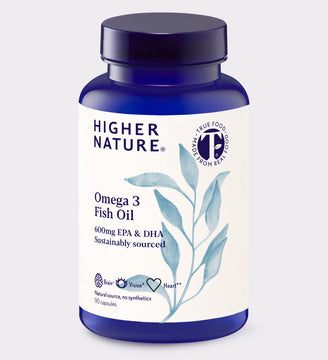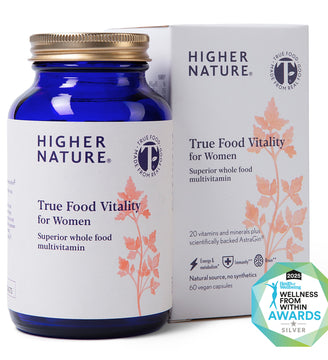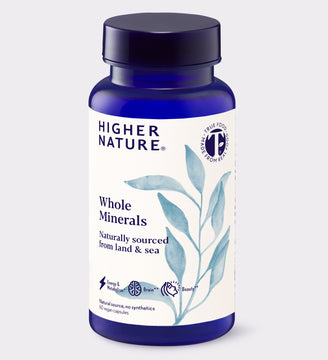
Eye health - protecting your assets
Higher Nature Nutrition Team
Vision is one the most precious things we possess but, just like the rest of the body, our eyes can be prone to problems as we age. Conditions such as age related macular degeneration (AMD) and cataracts are the leading causes of blindness in adults in the UK, accounting for almost half of adult blindness. The good news is that they are also preventable, so whatever your age, making the right lifestyle choices now could help save your eyesight in the future.
AMD and, to some extent, cataracts are thought to be associated with an excess of free radicals in the eye. In the case of AMD, causing the slow deterioration of the macular in the centre of the retina at the back of the eye, and in cataracts, the deterioration of the transparent lens.
Lutein, zeaxanthin and more recently meso-zeaxanthin, which the body can make from lutein, are all found in concentrated amounts in the macula, where they absorb blue light coming in through the eye and are thought to provide protection from its damaging effects. Rich food sources of lutein and zeaxanthin include yellow, orange and green fruit and vegetables as well as eggs. Spinach, kale, broccoli, peas, mango, apricot and melon are all packed full, so add these into your diet wherever you can.
Astaxanthin, the carotenoid found in pink seafood, also has a particular affinity for the eye as it appears it is able to cross the blood/retinal barrier offering great antioxidant protection against damaging free-radicals. Foods rich in astaxanthin include salmon, trout and prawns. Oily fish has other benefits too; higher levels of DHA in particular are linked to a lowered risk of developing AMD. Topping up omega 3 fats might also be beneficial if you suffer from dry eyes.
Vitamin A is necessary for the formation of rhodopsin- the pigment needed for night vision. Vitamin A is found in eggs, liver and dairy products but your body also makes vitamin A from betacarotene found in carrots and other yellow, orange and green fruit and vegetables. Zinc and selenium are also vital to eye health, being found in the retina and lens respectively. Wholegrains, nuts and seeds, seafood, meat and mushrooms are good ways to boost your intake.
On a practical level, invest in sunglasses to help minimize light damage, and combat screen fatigue with the 20/20/20 rule. Every 20 minutes look at something 20 feet away for 20 seconds to avoid eye strain. Finally, book regular eye tests to ensure any changes are picked up in good time.


















